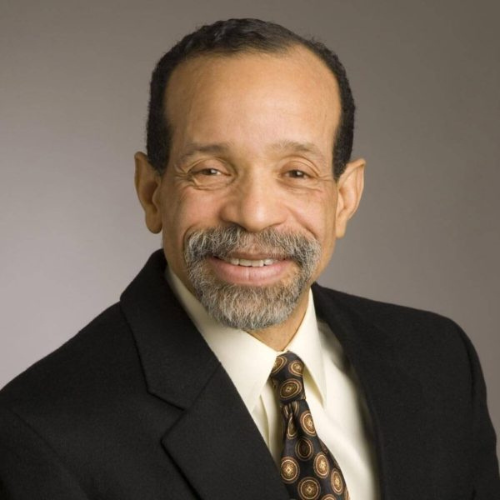Global Health Disparities: A Dialogue
87% of premature deaths due to non-communicable diseases occur in low to middle income countries
Every day, 16,000 children die before their fifth birthday
Life expectancy varies by 34 years between countries
In low income, low access areas, 50% of the population has limited access to supermarkets and grocery stores
Cardiovascular disease disproportionately affects non-Hispanic blacks and individuals of lower socio-economic status
Diet related disparities mirror the increased proportion of cardiovascular disease in at-risk populations
Inequalities exert significant social, relational, and economic costs to individuals, families, communities, healthcare systems and nations
Food “swamps” present in low-income communities have a greater density of fast-food restaurants and convenience stores that serve as primary food resources
Food budgets in low-income areas are insufficient to ensure a healthy diet
This results in a disproportionate burden of non-communicable diseases, the leading causes of death and disability globally, in underserved and at-risk populations globally. Despite robust research and multi-faceted interventions to address the social determinants of health, health disparities and barriers persist.
This was the first event of the 2022 Plantrician Education Series. Click here to learn more about our upcoming Education Series events.

Moderator: Scott Stoll, MD
Dr. Scott Stoll is recognized as an international leader in lifestyle medicine and whole food plant-based nutrition. He is the co-founder of the Plantrician Project, the International Plant-Based Nutrition Healthcare Conference, the International Journal of Disease Reversal and Prevention, and the Regenerative Health Institute, a unique collaborative project with the Rodale Institute that integrates a regenerative vision of human health, agriculture, and the environment. He served as the chairman of the department of Physical Medicine and Rehabilitation at Coordinated Health for 16 years, a team physician for Lehigh University and the United States Bobsled and Skeleton Team and was a member of the Whole Foods scientific and medical advisory board. Dr. Stoll is the Chairman of the board for The Plantrician Project.

Columbus Batiste, MD, FACC, FSCAI
Dr. Columbus D. Batiste is board certified in Cardiology and Interventional Cardiology. Since 2008, Dr. Batiste has served as Chief of Cardiology at the Kaiser Permanente Riverside and Moreno Valley Medical Centers. He also has shaped the careers of future physicians as an Assistant Clinical Professor at the University Of California Riverside School Of Medicine.
Over the years Dr. Batiste has been recognized for his work by multiple organizations ranging from Oakwood University as Alumnus of the Year 2009, Kaiser Permanente Riverside Medical Center as Internal Medicine Physician of the Year (2010), the Inland Empire Magazine Heart Hero (2010), the Kaiser Permanente Promise Award (2011), the Eagle Award for Excellence in Medicine (2013), and the Derrell Thomas Foundation Community Service Award recipient (2013).
During his practice, Dr. Batiste has performed over 2000 coronary interventions and hundreds of pacemaker implantations. Despite his procedural success, he noticed that he was doing nothing more than facilitating the mundane process of moving patients through a revolving turnstile that leads to increased medication and recurrent procedures. Hence, he sought to break this cycle and promote a long-term solution for his patients through nutrition, stress reduction, and exercise.
Dr. Batiste has reviewed the medical literature that has revealed the undeniable benefits of a predominant plant-based nutrition. Patients adhering to a whole food plant-based diet coupled with exercise and stress reduction have advanced toward a path of developing a healthy heart. As a result of this and other influences, in 2011, Dr. Batiste led out in establishing the Integrative Cardiovascular Disease Program (based at Kaiser Permanente). The objective of this program is to prevent the re-occurrence of major adverse cardiac events in patients who have been diagnosed with a cardiovascular disease by focusing on lifestyle modification and providing education regarding pharmacologic and procedural therapies. It is through this vehicle that Dr. Batiste performs monthly lectures educating patients and families on the benefits of nutrition.
Dr. Batiste’s mission is to share information so that “each one can teach one” about the benefits of plant based nutrition, daily exercise, and stress reduction and therefore; provide everyone with the opportunity to take control of their health. This mission has led to the formation of his alias, Healthy Heart Doc, which he uses when lecturing in the community and to blog on social media platforms. As a result of his passion, Dr. Batiste has lectured in multiple local and abroad venues including the Inland Empire Go Red For Women American Heart Association Conference, the Inaugural Jamaican Health Summit in Kingston Jamaica, as well as in multiple community settings encouraging people to Change the Game through nutrition.

David Bowman, MD
Dr. David Bowman is a Lifestyle Medicine physician and pediatrician. The Indianapolis native attended Howard University for undergrad and Indiana University for medical school. After residency at DC Children’s, he embarked on a career in global health and HIV and worked in Botswana, Nigeria and Haiti through Baylor and University of Maryland.
Dr. Bowman currently works at Howard University Hospital and is Board Certified in Pediatrics and in Lifestyle Medicine. After his own dramatic health transformation using Lifestyle Medicine, he has been passionate and innovative in empowering medical students and residents in various specialties, patients, and the general public about the power of applying the pillars of Lifestyle Medicine in their lives. He and his wife, Keisha, recently started a venture, “Lifestyle Med Revolution”, to provide transformative health education to churches, schools, and community programs; they have sponsored several “Daniel Fast” (WFPB spiritual fast) challenges that have revolutionized the lives of participants.
Dr. Bowman is earning his Master’s in Nutritional Sciences at Howard University to formalize his nutrition education. He was elected to the Board of Directors of the American College of Lifestyle Medicine in 2021 and is a member of the Health Equity Achieved by Lifestyle (HEAL) Initiative with ACLM. He is passionate about applying spirituality in achieving health goals.
Dr. Bowman’s work has transformed his own family, his patients, and their families, and he inspires those who hear him speak.

N. Margarite Ezinwa, MD, MPH
Dr. Ezinwa received her medical degree from University of Auckland, New Zealand, before completing residency training in Family Medicine at Franklin Square, and Preventive Medicine at Johns Hopkins including fellowships at the World Health Organization, and the National Institute of Health.
Currently as assistant Professor at Loma Linda University she combines her passions for assisting patients in lifestyle change and teaching the next generation of physicians equitable global-local and lifestyle medicine.
She was the founding director of the World Lifestyle Medicine Council (formally Lifestyle Medicine Global Alliance). Now serving as Chief Medical Officer she brings her skills and enthusiasm in working towards the eradication of non-communicable disease through global collaboration and partnerships promoting simple sustainable lifestyle change.
Recognized for her expertise of bringing lifestyle medicine to underserved populations Dr. Ezinwa has been invited to speak in over 10 countries, on 5 continents regarding lifestyle medicine, global health, equity, and leadership.
Dr. Ezinwa lives with her husband, four children and mother in California where they love to swim, read, and enjoy life together.

Dexter Shurney, MD, MBA, MPH
Dr. Dexter Shurney, MD, MBA, MPH was recently appointed by Adventist Health to be the Senior Vice President and Chief Medical Officer of Community Well-Being and the Blue Zones Institute. In joining Adventist Health, Dr. Shurney assumes a broad set of leadership responsibilities for strategy and solutions within the Well-Being Division to empower individuals, organizations, and communities. Additionally, he leads the work of the Blue Zones Institute as a “Living Lab” to create and codify best practice that can be replicated across regions as well as capitalizing on and enhancing the strength of the Blue Zones portfolio to serve communities of greatest need.
Prior to that, Dr. Shurney was the Chief Medical Officer and Senior Vice President of Clinical Affairs for Zipongo, the San Francisco-based based digital health and wellness company that focuses on enabling healthy eating “Healthy Eating, Made Simple”.
Dr. Shurney is the former Chief Medical Director / Executive Director for Global Health Benefits and Corporate Wellness for Cummins, Inc. He has an extensive background in health care management and policy. He has distinguished himself as a recognized leader in his profession in numerous ways.
Prior to Cummins, Dr. Shurney was the Chief Medical Director of the Employee Health Plan for Vanderbilt University and Medical Center. During his tenure at Vanderbilt, he also held joint faculty appointments as Assistant Clinical Professor, Division of Internal Medicine and Public Health, and Adjunct Faculty, Owens Graduate School of Management.
Other positions that Dr. Shurney has held include Senior Vice President and Chief Medical Officer for Healthways, Senior Health Policy Strategist in the Division of Government Affairs for the biotechnology company Amgen Inc., Chief Medical Officer, and Vice President of medical affairs for Blue Cross Blue Shield of Michigan, and Editor of the Journal of Managed Care Physicians.
Dr. Shurney serves on numerous boards including: The American College of Lifestyle Medicine (ACLM) where he is President-elect, the Global Business Group on Health, and the National Association of Managed Care Physicians. From 2007-2009, he served as the Chair of the Tennessee Diabetes Prevention and Health Improvement Board, appointed by Governor Phil Bredesen. He was also the most recent Chair of the Business Strategies Committee for Centers for Disease Control and Prevention (CDC)/National Diabetes Education Program (NDEP). For 12 years he served as the American College of Medical Quality’s (ACMQ) elected delegate to the American Medical Association (AMA).
Dr. Shurney is co-author of the book “Integrating Wellness into Your Disease Management Programs” which is a “how- to” strategic guide for employers that wish to innovate their approach to chronic condition management. Dr. Shurney is board-certified in general preventive medicine and public health. He is a fellow in the American College of Lifestyle Medicine.

Kim Allan Williams, MD, FACC, FASNC, FAHA
Dr. Kim Allan Williams was born and raised in inner-city Chicago, and attended the College of The University of Chicago, followed by the University of Chicago’s Pritzker School of Medicine, internal medicine residency at Emory University, and overlapping fellowships in Cardiology at the University of Chicago, Clinical Pharmacology, and Nuclear Medicine. He is board certified in Internal Medicine, Cardiovascular Diseases, Nuclear Medicine, Nuclear Cardiology and Cardiovascular Computed Tomography.
Dr. Williams joined the faculty of the University of Chicago in 1986, specializing in clinical cardiology, nuclear medicine and nuclear cardiology. He served as Professor of Medicine and Radiology and Director of Nuclear Cardiology at The University of Chicago School of Medicine until 2010. Among numerous awards and honors for his teaching in the medical school, residencies and fellowships, he was elected to Alpha Omega Alpha in 2008.
In 2010, he became the Dorothy Susan Timmis Endowed Professor of Medicine and Radiology and Chairman of the Division of Cardiology at Wayne State University School of Medicine in Detroit, MI. At Wayne State, he has started the Urban Cardiology Initiative — a program of education of physicians on disparities in healthcare, primary school education on cardiovascular health and community health screening in inner city Detroit. In November 2013 he returned to Chicago as the James B. Herrick Endowed Professor of Medicine and Cardiology at Rush University Medical Center.
Dr. Williams has published numerous peer reviewed articles, monographs, book chapters, editorials, and review articles in the field of nuclear cardiology and minority health issues, with emphasis on education and innovations in perfusion imaging and quantitation of ventricular function. His research interests include selective adenosine receptor agonists, fluorinated perfusion PET imaging, health care disparities and payment policy, and appropriate use of cardiac imaging.
Dr. Williams has served on numerous committees and boards at the national level, including the American Society of Nuclear Cardiology (ASNC), the American Heart Association (AHA), the American Medical Association (AMA), the American College of Cardiology (ACC), the Certifying Board of Nuclear Cardiology, the Certifying Board of Cardiac Computed Tomography, the Society of Cardiovascular Computed Tomography and the Association of Black Cardiologists (ABC). He served as President of ASNC from 2004 to 2005. He served as Chairman of the Board of ABC from 2008 to 2010. He also served on the Cardiovascular Disease Examination Board of the American Board of Internal Medicine (ABIM-CV) until 2012. He served as President of the American College of Cardiology (ACC) from 2015 to 2016.
Dr. Williams now serves as the Chief of the Division of Cardiology and is the James B. Herrick Endowed Professor of Medicine and Cardiology at Rush University Medical Center. He is also Editor in Chief of the International Journal of Disease Reversal and Prevention Digest (IJDRP).
Subscribe To Our Newsletter
Copyright © 2025 The Plantrician Project. All Rights Reserved.
